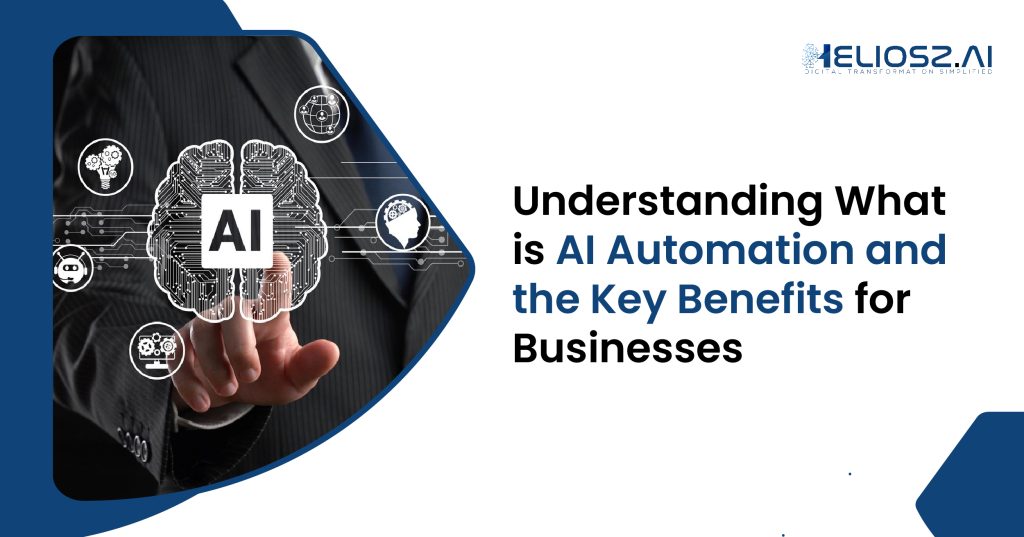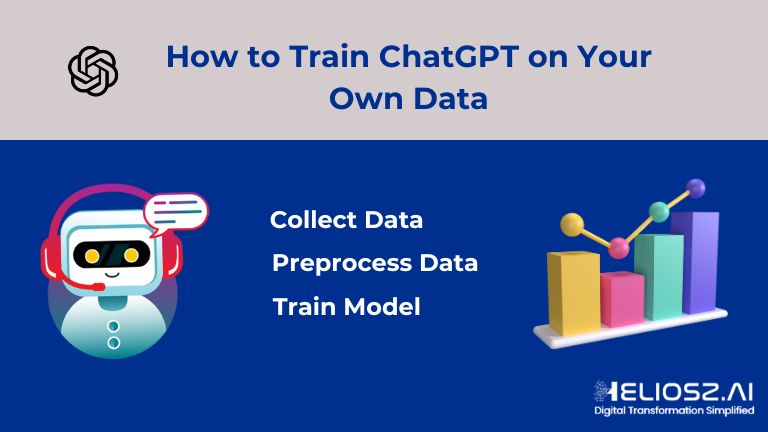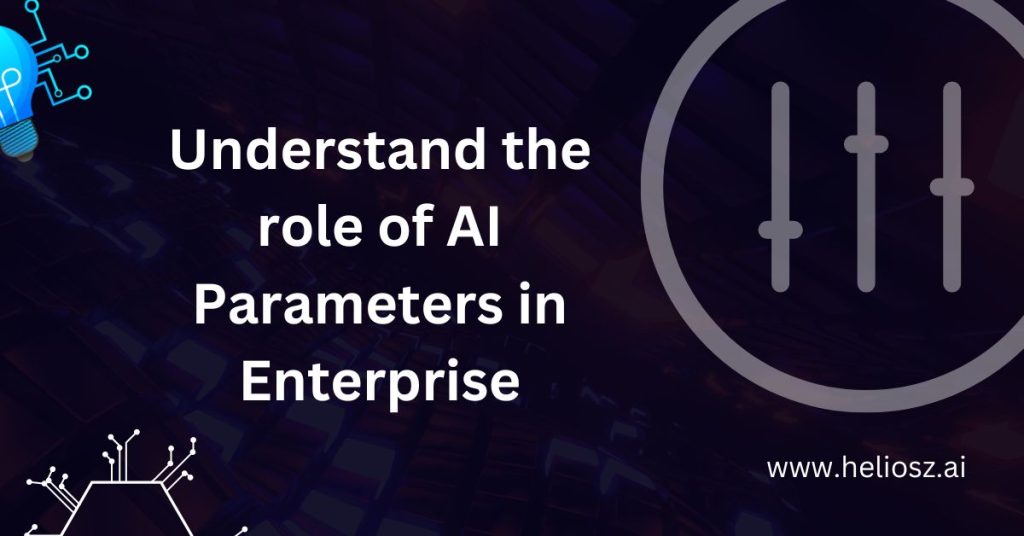
Artificial Intelligence (AI) automation forces the way business functions, manages processes, and delivers experiences. Since companies have been seeking ways to make their business more efficient and the process streamlined, AI automation has emerged as an important source. AI can be combined with automation technologies that automate complex and repetitive work while still enabling organizations to work more precisely at a lower cost. This is a highly competitive scenario, and an acquaintance with the principles and benefits of AI automation can be the need of the hour for any business that wishes to remain ahead in its respective field. This informative article will walk you through the definition of AI automation and other key topics that you need to have a good grasp on to strive in a modern technology-driven business world.
Understanding AI Automation: How It Works
AI automation, therefore, implies the use of artificial intelligence technologies to implement a range of automated tasks such that the system can make intelligent decisions and perform complex tasks with a minimum input of human activities. Basic automation is concerned with simply doing similar jobs over and over; however, AI brings in some element of cognitive functioning. This enables systems to learn, adapt, and improve based on data in real-time and past experience.
This is where the fundamental difference between the two lies in roles they would assume: automation is based on fixed commands and procedures, while AI uses data to identify patterns and make independent decisions. When they are brought together, two capabilities merged results in systems capable of handling jobs beyond simple automation with predictive maintenance, dynamic scheduling, or responsive customer service. In other words, AI automation takes this type of traditional workflow and transmutes it to intelligent, self-sustaining processes.
Key Technologies Behind AI Automation
The underlying technologies relied on include several other key technologies that enhance its capabilities:
Machine Learning (ML)
This is a critical element that enables AI to learn and grow over time. Looking at data trends, an ML model can spot trends and adjust, thus improving processes without requiring constant manual intervention.
Natural Language Processing (NLP)
This technology allows machines to be able to understand and process human language so that there can be automation of customer services through chatbots and virtual assistants that can communicate using a more or less natural human-like language.
Robotics Process Automation
RPA is the automation of business rules, which could thus include some activities related to administrative functions. These are things like data entry, invoice processing, or compliance reporting. With AI, RPA systems can deal with complex conditions for detecting fraud or solving customer support tickets.
Computer Vision
This will provide AI systems the ability to observe, examine, or analyze vision, enabling them to make judgments based on visual information, which is nearly cardinal applications – for example, quality control in the manufacturing sector or patient diagnosis in health service areas.
Collectively, these technologies form an ecosystem that enhances the efficiency of AI automation for varied contexts as well as industries.
Real-World Applications of AI Automation
The practical applications of AI automation are vast and have transformed all kinds of industries:
Customer Service
AI automation radically enhances customer experiences through chatbots and virtual assistants that can address inquiries around the clock. These systems understand the natural language, providing quick, accurate, and personalized support.
Supply Chain Management
AI will help with integrated automation systems that improve inventory management, predict changes in demand, and enable efficient logistics, bringing superior accuracy to the books with reduced operational costs, minimizing waste, and delivering lean operations.
Finance and Banking
AI streamlines process activities such as fraud detection, risk assessment, and compliance monitoring. Large volumes of transactional data analyzed in real-time are assessed for enhanced security and precision.
Healthcare
AI systems in the healthcare sector aid diagnostics by analyzing medical images and patient data for the detection of diseases. Automation also helps in the management of patients by ensuring timely interventions and developing specialized treatment plans.
These applications thus prove that the automation of AI also not only focuses on efficiency but changes the modus operandi of many industries while creating value.
Industries Benefiting from AI Automation
Sometimes, AI automation has been broadly applied in various sectors to leverage the revolutionary aspects of this technology.
Manufacturing and Production
AI automation can enhance assembly lines with quality control through computer vision while ensuring predictive maintenance. This highly reduces time-down and raises output considerably.
Retail and E-commerce
Automated systems keep track of stock, deliver personalized marketing campaigns, and are capable of predicting consumer behavior. For instance, recommendation engines are excellent examples of AI-powered recommendation engines, which facilitate a better shopping experience as well as increase sales.
Financial Services and Banking
In most banking and financial organizations, AI automation is used. There are examples such as service capabilities to customers and managing investments. For example, in the field of finance, robo-advisors provide adequate financial advice through algorithms and data analysis.
Healthcare and Pharmaceuticals
In this sector, AI automation spreads its wings in redefining healthcare up to the extent of development in the determination of patient diagnostics and drugs. In this line of systems, handling patient records, predicting outcomes, and supporting personalized healthcare delivery.
Logistics
The logistics sector grows exponentially with AI automation as it involves optimized route planning and monitoring the shipment in real-time. There are also autonomous delivery vehicles in the near future. AI algorithms analyze traffic, weather conditions, and shipment information to compute the most efficient routes. This cut down on delivery time and operational costs. Secondly, the artificial intelligence-driven inventory management system enhances efficiency in warehousing. It helps create a right stock in the right time and prevents delay in anticipation of a shortage of stock.
Its widespread use in the industry indicates that AI automation is crucial to encouraging innovation and promoting productivity.
Major Benefits of AI Automation in Business
Increased Operational Efficiency and Productivity
One of the most vital benefits of AI automation is dramatically increased operational efficiency and productivity. High volumes of work-whether data entry or manufacturing-related work, or even customer interaction-are managed with the same speed and accuracy by automated systems. AI further elevates the game by learning and optimizing through machine learning algorithms for perpetual betterment and task execution in fewer steps and higher accuracy. This simply gives business entities less time to conduct normal procedures but also enables human workers to be involved in strategic as well as creative work, all of which leads to higher productivity levels.
Reduced Costs and Better Resource Utilization
Business organizations can benefit from AI automation in that they can save much money by automating labor-intensive jobs and better resource utilization. Companies save on labor, training, and the cost of errors by automating many tasks and significantly reducing the involvement of people, especially where the work is repetitive or even mundane. Additionally, AI systems optimize the consumption of energy as well as eliminate wastage by their usage in the processes of manufacturing. The operational costs go down due to reduced energy consumption. For instance, predictive maintenance systems continuously monitor the activity of equipment and anticipate probable failures early enough to reduce instances of downtime with associated repair costs.
Tailored Customer Experience via Personalized Interactions
AI automation enables the company to offer customers a more tailored customer experience with personalized interactions so it may seem more engaging and satisfying. Real-time support, answering queries, and even suggesting proper services or products within an organization is possible through the help of AI-driven tools such as chatbots, virtual assistants, and recommendation engines. For instance, using a chatbot with NLP enables the understanding of customer inquiries in reaction to practically human-like interaction, which improves the quality and responds quicker to customers. The AI algorithms deployed by the e-commerce platform help know better about customer behavior and preferences, hence enabling creating personalized shopping experiences and targeted marketing campaigns. The level of personalization always leads to loyalty and subsequent repeat business, hence forming an important influence on the strategy of customers being retained.
Better Decision Making and Strategies through Data Analytics
It enhances decision-making since such businesses gain the insight that an AI system deems possible through analytics to supply them with real-time, data-driven insights into strategic planning and operational adjustments. Such datasets can be processed and analyzed by AI systems to extend beyond humanly possible for fully noticing hidden patterns and trends. Such information gives these business leaders the ability to make decisions that are spot-on, and knowledge-driven, whether related to supplying a product, developing a new one, or marketing strategy.
Business Scalability and Rapid Response to Market Changes
AI automation can ease the scalability of business firms and make scale flexible, increasing the response to fluctuations in the market quickly. Consequently, this expansion is easy. It eliminates the same human labor limitations because its capacities can be increased or reduced in the adjustment of changes in demand without lowering any aspects of efficiency or quality. For example, an AI-based e-commerce website can bear large volumes of peak sales traffic, and a greater volume of transactions can simply be passed through while also adjusting inventory levels automatically without human interference. Similarly, a logistics firm can use AI in dynamic rerouting of shipments according to real-time traffic patterns, weather conditions, or customer requirements.
Ethical Considerations in AI Automation
While automation through AI brings a lot of benefits with it, it also provokes very important ethical concerns:
The Efficiency of Automation
The sectors relying much on manual labor point to job losses, since acceleration of efficiency of production causes new models and reskilling talks.
Privacy Issues
AI systems collect and analyze vast amounts of data, which provokes very important questions on the level of privacy and thus points toward strong data protection measures.
Bias in Algorithms
AI can perpetuate existing biases found in the data used for its training; therefore, such algorithms might provide unfair or even discriminatory results.
Transparency and Accountability
This ensures a very high level of transparency in their decision-making process to help maintain trust and accountability, especially with more complex AI systems.
Regulation and Governance
AI development in the future requires a solid legal framework to deal with risks and encourage best practices in ethics.
Future Intelligence Trends and Innovation in AI Automation
AI automation is a fast-emerging technology, with highly promising prospects on the table:
- Autonomous Systems: Vehicles, drones, and smart devices are transforming transportation and logistics.
- Quantum Computing: By integrating quantum computing with AI, the processing capability could be increased by several folds, making it possible for the real implementation of better AI capabilities and possibilities of automation.
- Consumer Products: Almost every consumer gadget is now using AI for automation, from smart home devices to personal assistants, changing the way we live daily.
- Creative Industries: AI is slowly improving creativity, automating tasks that range from graphic designing to music composition and content creation, etc.
Embrace Future of AI Automation with Heliosz.AI
Heliosz.AI is developing and defining the future of AI automation. We give businesses cutting-edge solutions built on intelligence, flexibility, and accuracy through our proprietary AI platforms. These are engineered to integrate into all kinds of industries and streamline productivity efficiency while creating further strengths in their success. Heliosz.AI customizes intelligent automation systems for the unique needs of manufacturing, transportation, logistics, finance, healthcare, or retail, optimizing your operations while holding down costs.
Partner with Heliosz.AI and unlock the full strength of AI automation. Let us take your business into the future with innovative technologies that not only make processes simpler but further increase your competitive advantage in a rapidly changing marketplace.
Bottomline
AI Automation has long since been an idea born of science fiction, but it has become one of the most powerful forces that is reshaping the very face of industries around the world. Driven by the advancements of AI technology, automation goes beyond only basic and mundane tasks; instead, companies grow quickly, improve efficiency, and personalize customer experiences. But with these opportunities arise the questions of ethics and a need to regulate these newer technologies. The challenge with businesses embracing AI automation is not only the technological advantage but also meeting the standards of ethics while following sustainable development. It will then bring great promise to AI automation as it is a future of innovation and growth for those businesses ready and prepared to adapt and evolve.


